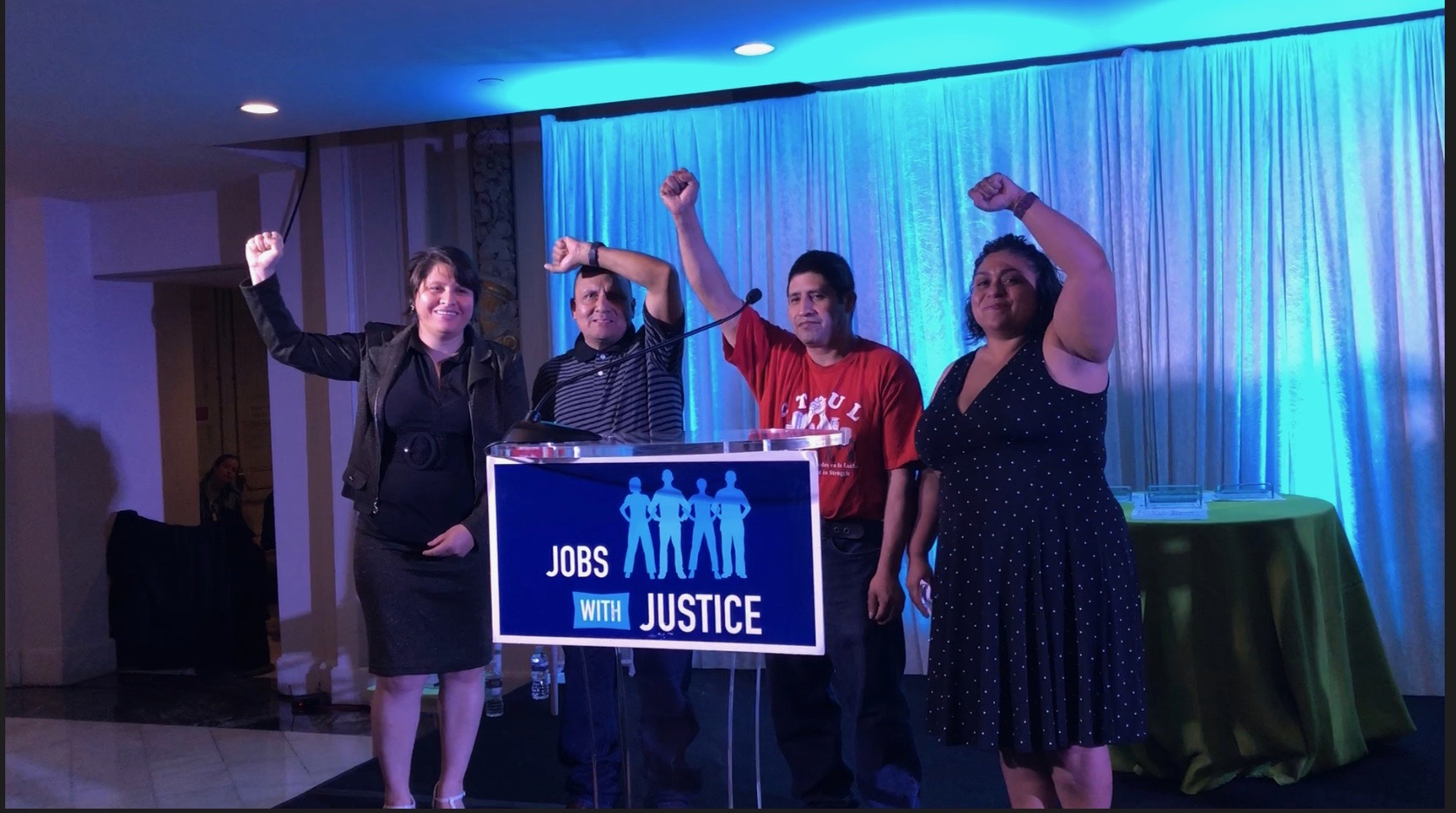

Share
There’s a lesson for other workers nationwide in the successful fight to unionize and win raises, regular schedules, decent benefits and worker protections for retail janitors in the Twin Cities, says Pascual Tapia of the Centro de Trabajadores Unidos en Lucha:
“The only way to stop exploitation is to focus our fights on the corporate giants that are controlling our economy, and hold them responsible.”
One of three Eleanor Roosevelt Awards from Jobs With Justice was awarded to, Centro De Trabajaoders Unidos en la Lucha, (CTUL), in recognition of their work to transform the retail janitorial industry in the Twin Cities metro area.
online pharmacy flagyl buy with best prices today in the USA
The Roosevelt Awards honor the legendary First Lady, workers’ champion, union member – the Washington Newspaper Guild – and progressive. Roosevelt who was one of the driving forces that moved the 1948 Universal Declaration of Human Rights, which declares that “Everyone who works has the right to just and favorable remuneration ensuring for himself and his family an existence
worthy of human dignity.”
The award goes to individuals and organizations who were outstanding champions of workers and workers’ rights the prior year.
The janitors’ organizing with CTUL have fought wage theft and have won $5.6 million in back pay for the 500-plus janitors. These custodial workers also fought for the right to organized and joined Service Employees Local 26. In bargaining, they successfully negotiated 50 percent wage hikes that more than wiped out huge wage declines in prior years.
After six years of demonstrations, half-a-dozen 1-day strikes, an 11-day hunger strike and mobilization of wide community support, the janitors not only won but made the Twin Cities the first metro area in the U.S. where retail janitors unionized.
online pharmacy stendra no prescription
“They gifted us with a blueprint to ignite a revolution,” JWJ Executive Director Sarita Gupta told the capacity crowd on Wedenesday June 20th in D.C.’s National Museum of Women in the Arts. “They’re raising their voices, along with Black Lives Matter and Fight for 15 and a Union. It’s precisely that type of leaders and innovators needed to reignite the labor movement.”
Tapia said in Spanish, through a translator, that when CTUL started, the retail cleaning industry in the Twin Cities, for Target and other big firms, “was an industry in crisis.”
“In 10 years, wages had gone down by $3 an hour, and the workload had doubled. And each cleaning company figured out a way to steal wages from its workers…They didn’t even have enough to pay us the minimum wage.”
online pharmacy purchase wellbutrin online generic
buy nolvadex online https://balboapark.org/wp-content/uploads/784/341/47/nolvadex.html no prescription
And the big retailers had outsourced their janitorial work to big national cleaning firms, to avoid responsibility for their workers.
“What was going on was not fair,” Tapia declared. That’s when Tapia and his colleagues, fed up, went to union-backed CTUL for help. “Everybody thought we were crazy.”
They weren’t. But it took a constant campaign to raise public awareness, round up community support, encourage consumer action against the exploitation, strike, and gain political backing.
“We were able to accomplish the impossible,” Tapia said. They also gained national notice: The rabidly anti-worker ruling Republicans on the politically polarized House Education and the Workforce Committee spent much of a recent hearing on labor law “reform” denouncing worker centers in general and CTUL in particular.
online pharmacy buy bactroban online no prescription pharmacy
The GOPers demanded the centers be considered as – and subject to the same federal controls as – unions, notably forcing them to publicly account for each dime they spend.
But the janitors’ fight in the Twin Cities carries other lessons for workers in general, Tapia told the D.C. crowd. They include training for leadership in “impacted communities, which generated a lot of power” and focusing the attack on the economic exploiters.
“Laws can be made and laws can be unmade and laws can be won and laws can be lost, but leadership inside cannot be taken away,” he said. “We will continue to fight until every worker…has their voice heard.”

